Death of a Hen
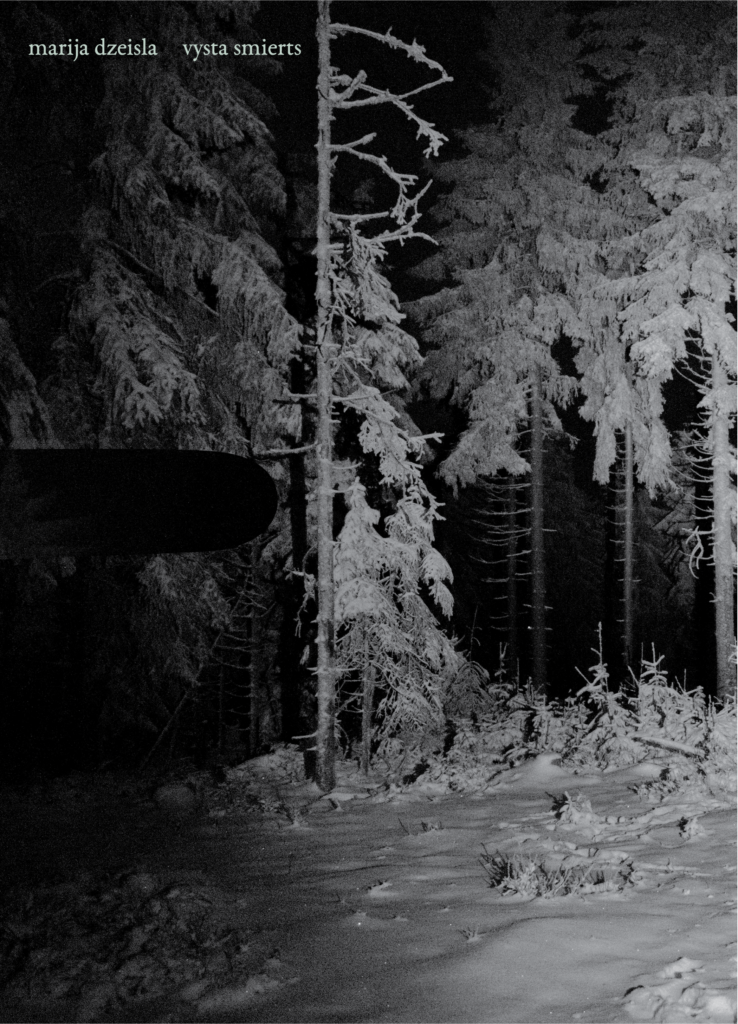
Latgale is a region in Latvia, which has historically always been left out and separated from the rest of the country.
It has its own struggles, as we all do, but the culture in Latgale is somewhat unique – and there is even a different language in use. It is not an official language in Latvia but has been acknowledged as a historical variety of Latvian, rendering it therefore preservable and maintainable.
Nowadays there are more than a few writers who publish their works in Latgalian, but they struggle to become visible and published in Latvian cultural media. In some way, the Latgalian language and Latgale itself are still seen as separate parts of Latvia and Latvian, and are considered to be useful only in an ethnological sense.
At the same time, there is a lot of talk about ‘Latvianness’, and the identity of a Latvian person as something monolithic and one-dimensional. This is not true. Now is the best time to recognize the diversity, to fully comprehend the reality of Latvia, and to enrich public understanding about what shapes the country.
Doing justice to the contribution of both their forefathers and contemporaries in the creation of the written word in Latgalian’s new, confident, and loud voice, Marija Dzeisla enters the scene of Latvian literature with their poetry collection “Vysta smierts” (Death of a Hen or All That Death – word play in Latgalian).
In Marijas Dzeisla’s poetry, existentialism obtains a Latgalian face; experience, history and heritage in the poems intertwine with the realities of life as it is today, under the circumstances of a pandemic in Latvia, in Latgale. The poetry collection is full of irony and pertinent humour. The unique imagery – the ability to connect the cosmic, beginning with stars and planets and ending with political events in Latvia and worldwide, with the negligible; for example, with the rag blanket made by a grandmother, or with the birth of a calf – is what adds to Marija Dzeisla’s style, and pleasant originality. This is also the reason why it is easy to identify with Marija Dzeisla’s poetry, even if you are not from Latgale. Marija Dzeisla awakens both the memory and the veins (‘dzeisla’ means vein in Latgalian), leading to the roots at the foundation of human existence. It is contemporary, extraordinary and utterly essential in these times when we are forced to consider the identity of ourselves, our families, and our nations, as the result of politically motivated actions.
General information
Year of publication: 2021
Original title: Vysta smierts
Page count: 96
Original publisher: House of Languages (Valodu māja)
Original language of publication: Latgalian
Gallery
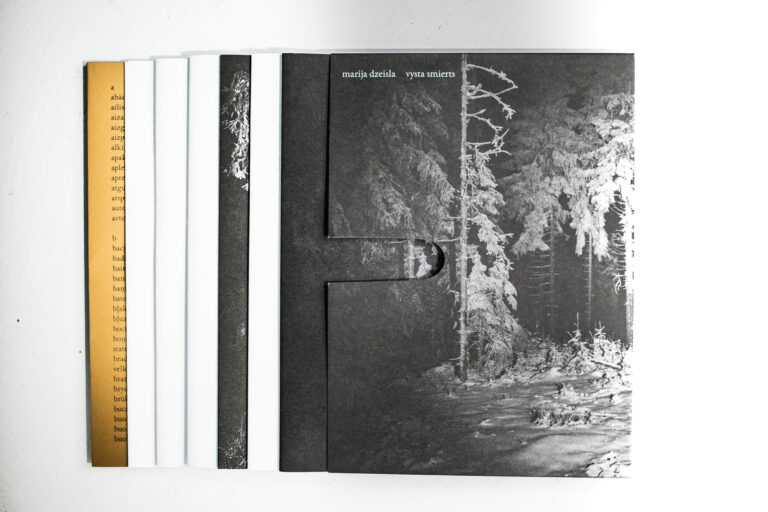
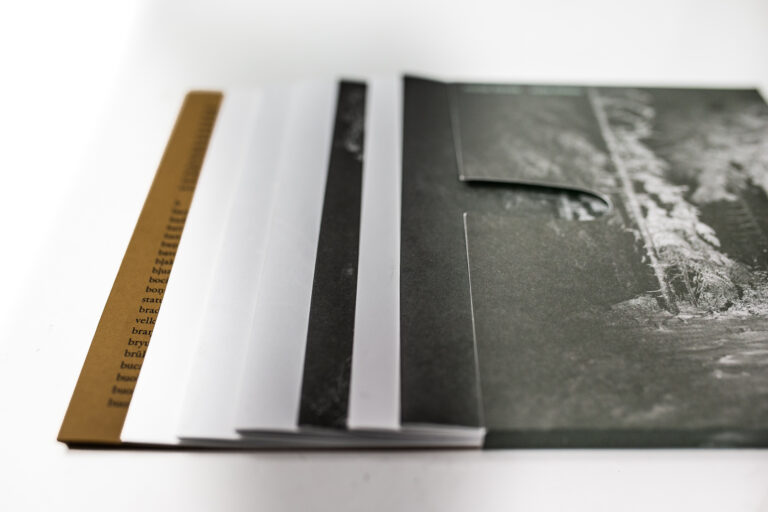
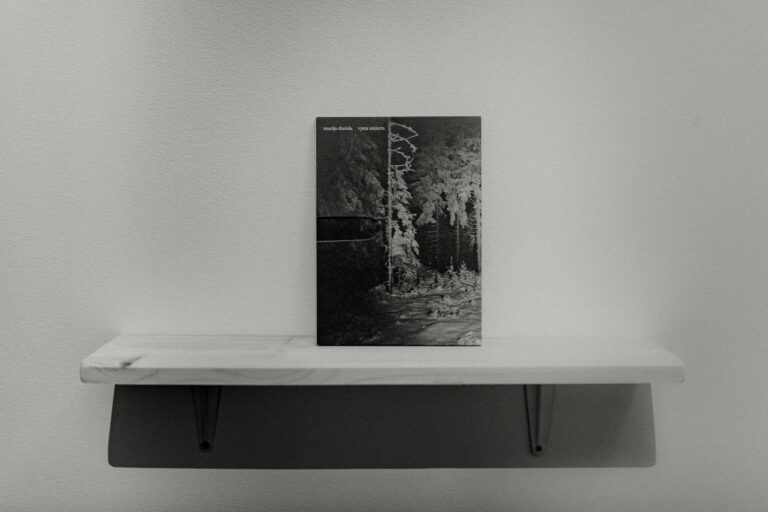
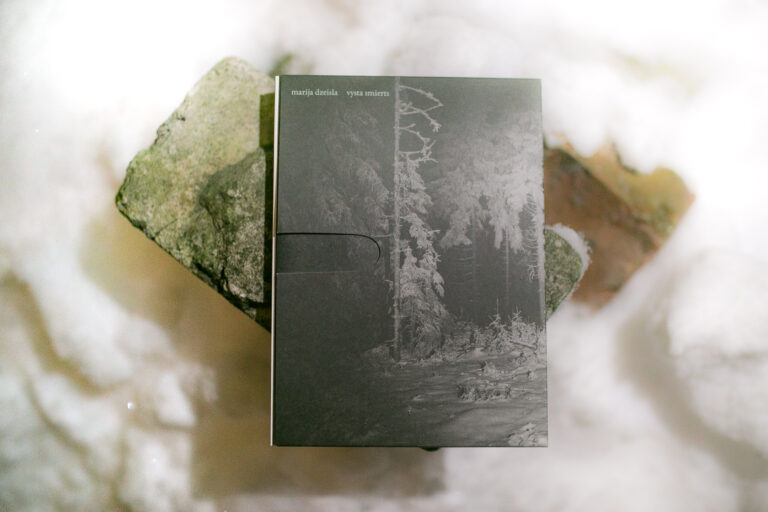
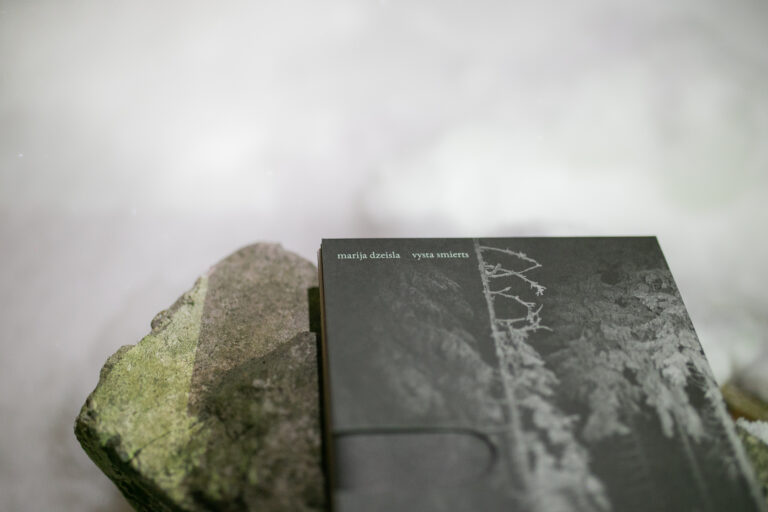
Photographer: Dārta Vijgrieze
Reviews
“[..] the existence of Marija Dzeisla is, in some ways, like a large-scale performance of Latgalian literature. It is no secret that writers who write in Latgalian have spoken a lot about an unwillingness to publish them in Latvian cultural media. But Marija Dzeisla [..] has been published both in the magazine Domuzīme and the online magazine Punctum.lv. How did they do it? I do not guarantee that this is the whole truth, but I think that it is the effect of publicity. Marija is known from Facebook, Marija is mysterious and interesting. Understandable, undeniably – Marija creates good literature.”
Laura Melne Radio Broadcast Kolnasāta
“No matter how up to date the poems about networks and QR codes would seem, those [poems] which speak about inner revelations and emotional experiences – about death, eternity, love – target the most powerfully. Through pain, through wading through the river of life. But in general, there is a good balance between modern and eternal themes in this poetry collection. If there were just one or another, I probably would not feel such strong impulses and impressions. In a way, it both fascinates and frightens that the exact same things happen in a skyscraper in New York as in a country house in Latgale – a person talking to themselves on Zoom or on a video conference, making or watching video clips on YouTube, giving likes to other people’s pictures on Facebook, or scrolling through Twitter.”
Inga Pizāne www.lakuga.lv
“Unlike their closed off identity, the world of Marija’s poetry is open. No need to break in or push in. One line at a time, it flows into the reader by itself [..], reflecting what has been read in a reader’s own experience, their childhood memories, stories of parents and grandparents. The voice of Marija is clear and bright, their narrative is steady, there is a sense of (self-)irony, a light smile, smart in their tone. [..] While reading the collection I laughed in some places, but in others a heavy weight pressed on a fragile spot. Closing the last page, a deep feeling caused by the poetry gusted to my tear ducts.”
Jana Egle Newspaper Kultūrzīmes
Authors
Marija Dzeisla has been publishing poetry on the Internet since 2016 and their circle of supporters since then has become noticeable. There is an interest in their age, gender, etc. among several texts published on their Facebook profile, but all discussions always end with the realization that such details are not important to feel a connection with the text. The text becomes the central object of this bond, and Marija Dzeisla the voice of subconsciousness.
Elena Helfrecht (1992, born and based in Bavaria) is a visual artist working with photography. Her work revolves around the inner space and the phenomena of consciousness, emerging from an autobiographical context and an opening up to the surreal and fantastic. Interweaving memories, experiences, and imagination, she creates inextricable narratives with multiple layers of meaning and a visceral iconography. The folklore and landscapes from her childhood are rooted in her heart and continuously influence her work, as does her love for Art History, Literature, and Psychology. Elena’s work has been exhibited and published internationally.